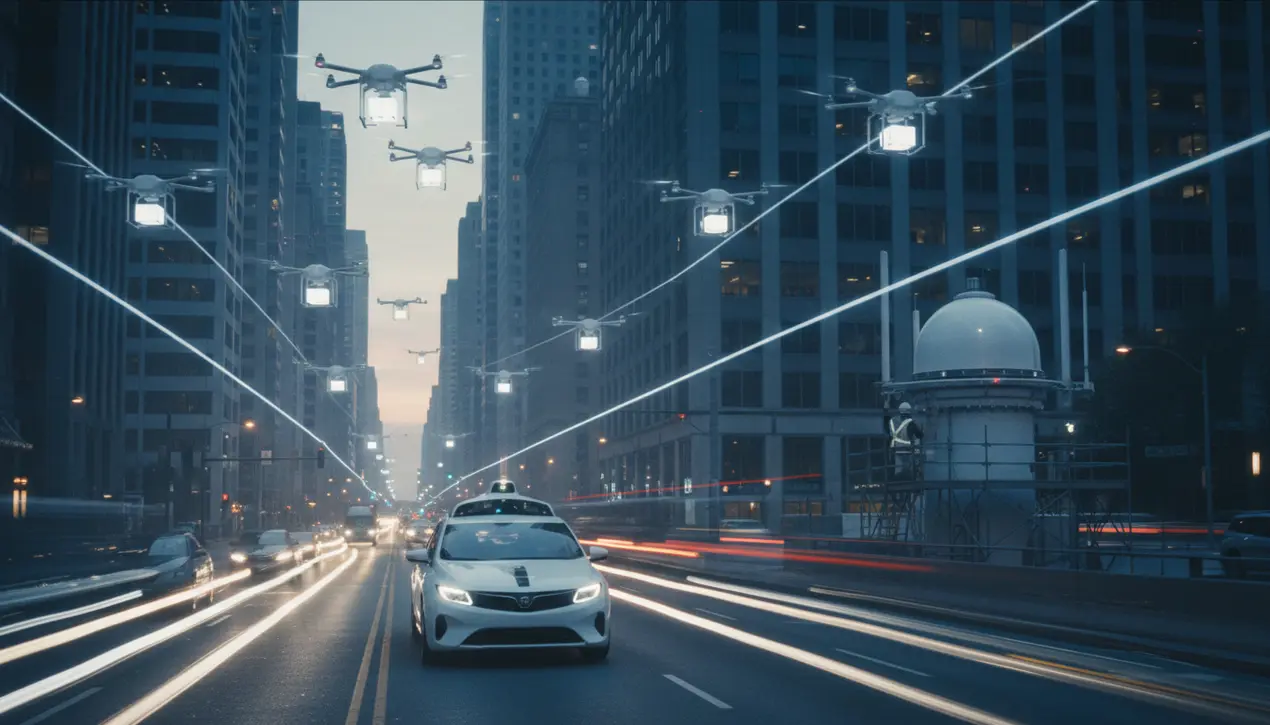
Otherauto & mobilityAutonomous Cars
Khosla-Backed Startup Tracks Drones and Robotaxis Precisely
DA
Daniel Reed
2 days ago7 min read2 comments
In the rapidly evolving landscape of autonomous systems, precision is the new currency, and Point One Navigation has just made a monumental deposit. Fresh off a funding round that catapults its valuation to a staggering $230 million, with backing from the formidable Vinod Khosla's venture firm, this startup is executing a strategic pivot that should make every player in robotics and automotive sit up and take notice.They are moving decisively beyond their initial foothold in automotive to master the far more complex and chaotic airspace of drones and the nascent, but critical, domain of robotaxis. At the core of their technology is a sophisticated fusion of high-precision GNSS (Global Navigation Satellite Systems) correction with inertial navigation systems, a combination that effectively creates a hyper-accurate 'truth' layer for the physical world.Think of it as providing a centimeter-level GPS signal in a world accustomed to meter-level inaccuracy—a leap in fidelity that is not merely incremental but foundational. For drones, this means the difference between a package being safely lowered onto a suburban doorstep and it colliding with a gutter or a tree; for a robotaxi navigating a dense urban canyon amidst signal-blocking skyscrapers, it is the difference between a smooth, confident lane change and a catastrophic system disengagement.This is the kind of infrastructure that doesn't just improve existing applications; it unlocks entirely new ones, from complex drone delivery networks in cities to fully autonomous vehicle fleets that can operate safely at scale. The technical challenge here is immense, reminiscent of the early days of developing reliable large language models, where the initial breakthroughs in transformer architectures had to be painstakingly refined to handle real-world ambiguity and noise.Point One is tackling a similar problem of real-world noise, but in the physical realm—compensating for signal multipath, atmospheric interference, and the dreaded urban canyon effect that plagues standard GPS. Their approach likely involves a network of ground-based reference stations that constantly measure GPS errors and broadcast corrections, a technique known as Real-Time Kinematic (RTK) or Precise Point Positioning (PPP), fused with high-grade IMUs to fill in the gaps during signal loss.The $230 million valuation is a powerful market signal, a bet by Khosla and others that the 'location stack' will be as critical to autonomy as the 'AI stack' is to intelligence. We are witnessing the emergence of a new layer in the tech ecosystem: the spatial web's fundamental plumbing.Just as cloud computing providers like AWS became the indispensable backbone for the internet economy, companies like Point One are positioning themselves to be the indispensable providers of positional certainty for the physical economy. The competitive landscape is fierce, with incumbents like Trimble and u-blox, but the startup's focus on a scalable, cost-effective solution for mass-market autonomy gives it a distinct edge.The broader implications are profound. For regulators, this technology provides a verifiable safety record for autonomous vehicle operations, a data trail that could accelerate certification.For city planners, it enables the precise geofencing required to manage low-altitude drone highways. And for the AGI debate, it's a poignant reminder that true intelligence in the physical world is not just about perception and reasoning, but about possessing an exquisitely accurate and reliable sense of place. Point One Navigation isn't just selling a better GPS; it is building the cartographic nervous system for the next industrial revolution.
#Point One Navigation
#startup
#autonomous vehicles
#drones
#robotics
#precision tracking
#featured
Stay Informed. Act Smarter.
Get weekly highlights, major headlines, and expert insights — then put your knowledge to work in our live prediction markets.
Comments
Loading comments...
© 2025 Outpoll Service LTD. All rights reserved.